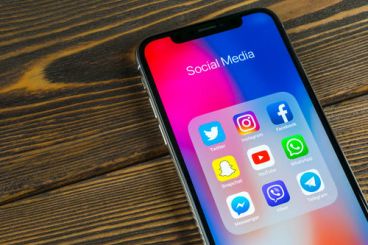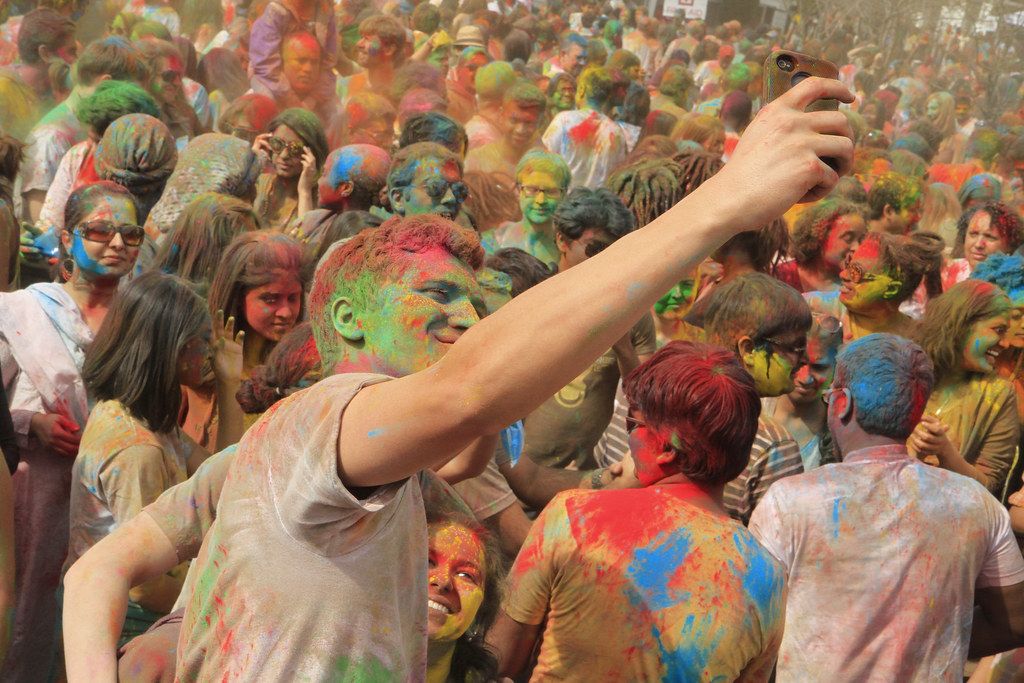No matter the decade or the components that make up dominant pop culture, there’s always a common denominator; the certain need for likability and validation that the majority of humans can’t help but feel from time to time. That need to feel connected and in the mix of what’s trending is something that’s hard to shake off especially at a young age. As we look at our phones in 2021 and reflect on those ideas, we see one of mankind’s most social innovations that have exploded in the past decade, social media platforms.
If you like sports, they have it. If you like music, they have it. If you even like video games, they surely have things associated with them somewhere on some account. All these different genres and forms of entertainment are intertwined on these platforms as we can consume it in many different ways, while also having the ability to create our own accounts, post content, and comment on other people’s posts. Obviously, the most popular ones such as YouTube, Instagram, Twitter, Facebook, Snapchat and Tik Tok have their own things about them that make them unique powerhouses, but they all still have the aspect of people sharing content in some way, that shows how the effects they all may have on people are similar after all.
As they have grown more and more popular since Zuckerberg presented Facebook to the world in the mid-2000s, many other platforms that came after that found success in the 2010s used a similar formula. It’s all about having the identity you want to have and what you want someone to think when they first view your profile on any platform when taking the posted content, likes, followers and comments you have into account. What these apps and websites do revolves around creating a different, virtual existence that can act as a person’s escape from their actual reality which has raised controversy as mostly everyone has found their way to social media.
About 70 percent of the United States have utilized social media in some way, shape or form, but narrowing this down to adolescents will be our main

focus when talking about the mental effects. In terms of that 70 percent, this means that amount has an existing social network account somewhere, and when looking at social networking platforms as a whole it’s no surprise to see how the overall users on them have tripled since 2010, from 970 million all the way to 3.81 billion users in 2020. This means it has left its footprint on half of the world in some way, which makes it hard to not look into the mental effects of such a monumental advancement.
In developed countries, about 94 percent of teens use social media, which has been a driving force in how teens communicate with each other and receive certain news in a number of different categories. With social media being so culturally ingrained into our modern society, many controversial discussions and studies have been put into question to see if it possibly does more bad than good, attacking the mental health of a young person’s mind.
Sophomore education major Gabby Fernicola weighed in on life with social media as she is also a young adult that’s a product of this era, and someone who isn’t shy when speaking on her battles with anxiety. “For a lot of people, their accounts on these apps can definitely be an escape from reality, with how much edited content you can post,” Fernicola said. Obviously, you have your people who have brands of some sorts and use social media platforms to promote it in various ways, but for the majority of people who just use it to depict their daily lifestyle, it can get stressful to figure out what you want to post and how you want the world to view your page. Promoters aren’t completely safe from this conversation though, because actually anybody can fall susceptible to trying to depict a life online that in reality, isn’t them.
Anxiety and depression have been brought up alongside social media, as people have wondered if social media has been a cause for these conditions as depressive symptoms have increased in teens by 33 percent from 2010 to 2015, according to a 2017 national study. Less sleeping, lower self-esteem, depression, anxiety, poor body image, loneliness and the list goes on in terms of signs that should tell you that you shouldn’t spend as much time on social media as you usually do. This should especially be considered on platforms like Instagram and Facebook, who have the most users and visitors each day as 75 percent of Facebook users and 63 percent of Instagram users visit their site at least once a day, because of how platforms like those have unique layout of a profile that’s easy to scroll through, get a feel for, and quickly renovate.

To slightly extend the conversation from just teens to young adults, 91 percent of people ages 16-24 use the internet to social network in some way and rates of depression and anxiety have increased 70 percent in the past 25 years, according to the Royal Society for Public Health. When looking at how much mental health conditions have been on the rise and how smartphones, the internet, and social media is such a large part of the modern world, it’s a concept one can grasp onto easily without fully looking beneath the surface. Overall, through the multiple studies that have been conducted, it looks more like a correlation than causation when it comes to pairing social media use and deteriorating mental health.
“Personally I believe that if you’re someone who is already battling with things like depression and anxiety in other avenues of life, then being on social media a lot just ignites it even more,” Fernicola said. “It’s really about the type of person you are, because if you are already outgoing and have a high self-esteem, it’s going to take a lot to change who you are even on social media.” Many have advocated for social media heavily, saying it’s actually a good tool of communication and networking for teens and young adults, and helps with their overall social integration. That being said, it seems like more of time management and a sense of identity discussion.
“It’s been a very controversial and broad discussion as people studying its effect have never been able to come to a common understanding, because of how both the pros and cons of social media have been stressed,” communication professor and social media pundit, Dr. Nune Grigoryan, said. “It comes down to using it with moderation and knowing your limits, as you educate yourself on what to be aware of when it comes to the negative effects it can have when scrolling through these platforms for so long.”

Grigoryan continued by talking about how apps like to pull features from other apps to stay trendy and to not fall behind, like how Instagram for example implemented stories that are inspired by Snapchat and reels that are inspired by TikTok. “It’s all about the attention economy, which is when these apps basically value sucking in a person’s attention rather than directly getting paid from them upfront,” Grigoryan added. “They’re aware that your attention and interest in the overall app will eventually lead to additional purchases and a higher presence of people on the app along the way. It’s important to be real with ourselves and know that their biggest interest is making money so the ones that need to look out for us and our best interest is essentially ourselves.”
The internet and all the social networking that comes with it has truly been a wonder to our world, but like all great things to hit humanity, it comes as no surprise when too many when harm along comes the way. Knowing when to take a step away, be yourself, and try not to uphold any of the standards that the media may present to teenage minds is all that is asked from these men and women that conduct these studies and collect these stats. Having low self-esteem surely hasn’t magically appeared during this age of social media, If it ever does kick in at this point in time when one is trying to find their place in the world, stepping back into reality and taking care of yourself before hopping back on an app may be healthier than a lot of young social media users may think.



